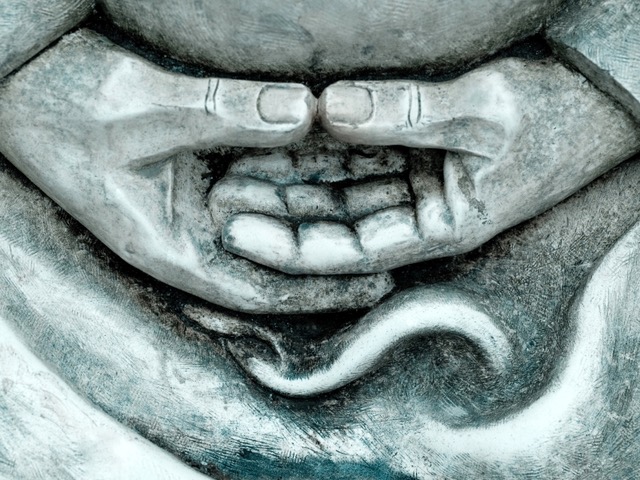
In recent years, acupuncture, a practice rooted in Traditional Chinese Medicine (TCM), has emerged as a powerful treatment for healing from complex trauma and PTSD. As people seek options beyond conventional talk therapies and medications, many are turning to acupuncture for its holistic approach to healing the body and mind.
PTSD and Trauma: The Silent Epidemic
PTSD can develop after a person experiences or witnesses a traumatic event, such as violence, a natural disaster, or a serious accident. Symptoms can include flashbacks, anxiety, insomnia, and hypervigilance, making daily life a struggle. Conventionally, PTSD is treated with talk therapies like CBT, which help patients process traumatic memories or medications that aim to reduce anxiety and depression. While these are considered clinically effective treatments, for some, these approaches fall short or can be overwhelming or retriggering.
Acupuncture and herbal medicine can be significantly helpful to people who have struggled with other approaches and techniques or found their outcomes limited. By offering a primarily non-verbal, body-centered alternative, acupuncture helps restore balance in the body without requiring patients to relive their traumatic experiences.
How Acupuncture Works: A Physical Pathway to Emotional Healing
In Traditional Chinese Medicine, PTSD and trauma are understood as blockages and disruptions in the body’s vital energy. Acupuncture involves the insertion of thin needles into specific points on the body to unblock and redirect this energy. But what does modern science have to say about acupuncture’s ability to treat the physiological and psychological effects of trauma?
The answer lies in the body’s nervous system. Studies show that acupuncture helps regulate the body’s stress responses by:
- Modulating the hypothalamic-pituitary-adrenal (HPA) axis, which is often overactive in individuals with PTSD, reducing the release of stress hormones like cortisol.
- Stimulating the parasympathetic nervous system, promoting a state of calm and relaxation.
- Releasing endorphins and neurotransmitters, which naturally alleviate symptoms like anxiety, depression, and pain.
This combination of effects makes acupuncture a compelling alternative to more traditional treatments.
Healing from Complex Trauma and PTSD
Clinical studies are increasingly supporting acupuncture as an effective treatment for PTSD, with some researchers suggesting it may work as well—or even better—than talk therapy for certain patients.
One of the most significant studies, Hollifield et al. (2007), involved a randomized controlled trial of 73 PTSD patients. Participants were divided into three groups: those receiving acupuncture, those undergoing CBT, and a waitlist control group. Both acupuncture and CBT significantly reduced PTSD symptoms like anxiety, depression, and overall emotional distress. Remarkably, the benefits of acupuncture persisted for three months after the treatment ended, suggesting that its effects may be longer-lasting than therapy alone.
In another study the neuromodulatory effects of acupuncture in the treatment of PTSD consistently reduced symptoms involving over and found that acupuncture, particularly hyperarousal and avoidance behaviors—key hallmarks of the disorder. The researchers concluded that acupuncture could serve as a viable alternative to conventional therapies, especially for those who haven’t found relief through traditional methods.
The Difference between PTSD and Trauma
Trauma refers to the body’s physical and emotional response to distressing events, while PTSD (Post-Traumatic Stress Disorder) is a clinical condition that can develop after trauma, characterized by chronic symptoms like flashbacks, hypervigilance, and avoidance behaviors.
Chinese Medicine’s Approach to Trauma
In Traditional Chinese Medicine (TCM), trauma disrupts the flow of “Qi” (vital energy), leading to symptoms such as muscle tension, digestive issues, and anxiety. Treatment focuses on restoring Qi balance using acupuncture and herbal medicine to calm the nervous system and alleviate physical symptoms.
Chinese Medicine’s Approach to PTSD
PTSD represents a deeper imbalance affecting core systems, particularly the heart, liver, and kidneys. TCM addresses these chronic disruptions by regulating the hypothalamic-pituitary-adrenal (HPA) axis through acupuncture, reducing stress hormones, and promoting relaxation. Herbal formulas target the body’s organ systems impacted by long-term stress.
Both trauma and PTSD are treated holistically in TCM, focusing on restoring physiological and emotional balance, providing a non-invasive alternative to conventional treatments.
Why Acupuncture Could Be a Better Fit for Trauma Survivors
Unlike conventional talk therapies, acupuncture doesn’t require patients to discuss or relive their trauma. For many people with PTSD, this is a game-changer. Talk therapies like CBT often involve cognitive restructuring, where patients actively confront their traumatic memories, a process that can be emotionally taxing and even re-traumatizing for some.
Acupuncture offers a non-invasive, non-verbal alternative. By working directly with the body’s nervous system, acupuncture helps reduce anxiety, promote relaxation, and alleviate the physical symptoms associated with trauma—without requiring patients to engage emotionally.
A Holistic Approach to Healing
PTSD doesn’t just affect the mind; it affects the body. Trauma survivors often suffer from chronic pain, tension, insomnia, and digestive problems—symptoms that are typically not addressed in traditional psychotherapy. Acupuncture’s whole-body approach treats these physical manifestations alongside the emotional ones, providing comprehensive relief.
Fewer Side Effects, No Medications
Many individuals with PTSD are prescribed medications such as antidepressants or anti-anxiety drugs. These medications can be effective but often come with side effects, including fatigue, weight gain, and dependency. Acupuncture offers a natural, drug-free alternative with minimal side effects, making it a more appealing option for those looking to avoid or reduce reliance on medication.
Faster, Longer-Lasting Relief
Patients undergoing acupuncture for PTSD often report immediate improvements after just a few sessions. Studies like Hollifield et al. (2007) also suggest that acupuncture’s benefits can last longer than traditional therapy, with some patients experiencing relief months after treatment has ended. In contrast, cognitive therapies often require ongoing sessions to maintain progress.
Comparing Acupuncture to Traditional Therapies
Mechanism of Action
- Acupuncture primarily works by regulating the body’s physiological systems—balancing neurotransmitters, reducing inflammation, and promoting parasympathetic activity. Traditional therapies like CBT focus on cognitive restructuring and emotional processing, requiring patients to mentally engage with their trauma. For some individuals, acupuncture’s body-centered approach is more manageable than the emotional demands of talk therapy.
Time Commitment
- While traditional therapies can require weekly sessions over many months or years, acupuncture typically requires fewer sessions, and patients may begin to feel relief after just a few treatments. This makes acupuncture a more time-efficient option for trauma survivors seeking faster relief.
Patient Burden
- Many PTSD patients avoid therapy because the thought of discussing or confronting their trauma feels overwhelming. Acupuncture provides a non-verbal path to healing, allowing patients to recover without revisiting their traumatic memories. This makes it a less stressful alternative to therapies that require emotional engagement with trauma.
Acupuncture: A New Path to Trauma Recovery
As more research emerges, acupuncture is being recognized as a viable primary treatment for PTSD and trauma. It offers a holistic, accessible, and often more tolerable approach to healing for those who struggle with conventional therapies. While talk therapies and medications remain essential tools in the treatment of PTSD, acupuncture presents an ancient yet scientifically validated alternative that works by healing the body as well as the mind.
For trauma survivors seeking a less invasive, less emotionally demanding treatment, acupuncture may offer a new (or rather, ancient) path toward recovery.
Recovery after trauma is possible. Schedule your appointment or call for a free consultation to engage clinically effective and compassionate treatment.
Sources
Acupuncture for posttraumatic stress disorder: a randomized controlled pilot trial – NIH


